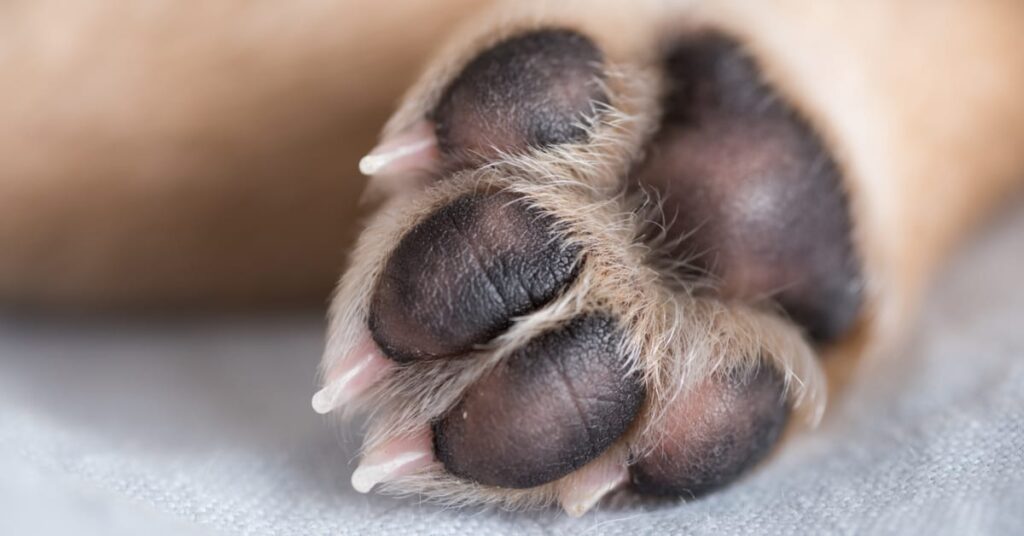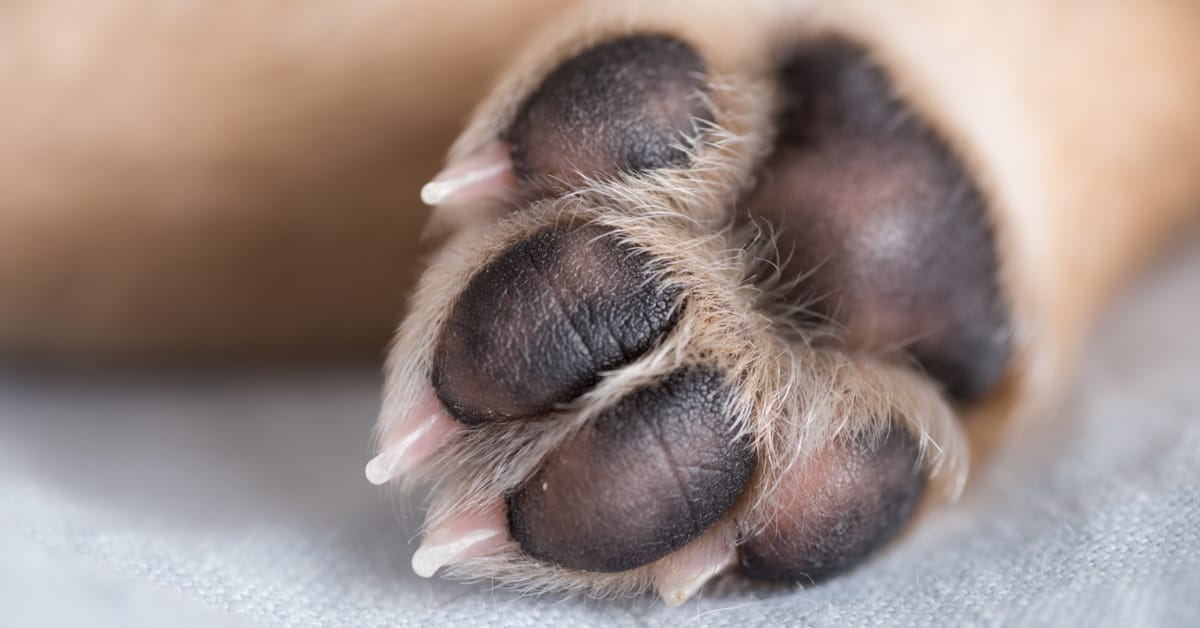
Decoding Dog Paw Odor: Causes, Solutions, and Prevention
Dog owners often face a perplexing problem: a persistent and unpleasant odor emanating from their beloved canine’s paws. This phenomenon, commonly known as ‘dog paw odor,’ can be quite alarming and often leaves owners wondering about the underlying causes and potential solutions. Understanding the reasons behind this odor and implementing effective preventative measures is crucial for maintaining your dog’s hygiene and overall well-being. This article delves into the various factors contributing to dog paw odor, provides practical solutions, and offers preventative strategies to keep your furry friend’s paws smelling fresh.
Understanding the Root Causes of Dog Paw Odor
Several factors can contribute to the development of dog paw odor. Identifying the specific cause is the first step in addressing the problem effectively.
Bacterial and Fungal Infections
One of the most common culprits behind smelly dog paws is bacterial or fungal infections. Dogs’ paws are constantly exposed to various environmental elements, making them susceptible to microbial growth. Certain bacteria and fungi thrive in moist and warm environments, making the spaces between the paw pads ideal breeding grounds. The most common culprit is yeast, specifically *Malassezia pachydermatis*, which can cause a distinct, musty odor. Bacterial infections, often involving *Staphylococcus* species, can also contribute to the unpleasant smell. These infections often result in inflammation, redness, and even discharge, exacerbating the odor. Regular cleaning and drying of the paws can help prevent these infections. Addressing these infections promptly is critical, often requiring veterinary intervention.
Environmental Factors
The environment in which your dog lives and plays plays a significant role in the development of dog paw odor. Dogs that frequently walk on dirty surfaces, such as muddy fields or contaminated sidewalks, are more likely to accumulate bacteria and debris in their paws. Additionally, exposure to allergens like pollen and grass can trigger allergic reactions, leading to inflammation and increased moisture, creating a conducive environment for microbial growth. Regularly cleaning your dog’s paws after outdoor activities can significantly reduce the risk of environmental contamination. Consider using paw wipes or a gentle antiseptic solution to remove dirt and allergens.
Dietary Issues and Allergies
Believe it or not, a dog’s diet can also influence the health of their paws. Nutritional deficiencies or food allergies can weaken the immune system and make the dog more susceptible to infections. Certain food sensitivities can manifest as skin problems, including inflamed and itchy paws, which can lead to excessive licking and secondary bacterial or fungal infections. Consulting with a veterinarian to identify and address any potential dietary issues is crucial. A balanced diet rich in essential nutrients can help strengthen the immune system and improve overall skin health. Food elimination trials may be necessary to identify specific allergens. [See also: Canine Nutritional Requirements]
Excessive Licking and Grooming
While grooming is essential for dogs, excessive licking of the paws can actually contribute to dog paw odor. Saliva contains enzymes and bacteria that, when trapped in the fur and skin of the paws, can create a breeding ground for microorganisms. Furthermore, constant licking can disrupt the natural skin barrier, making the paws more vulnerable to infections. If you notice your dog excessively licking their paws, it’s essential to investigate the underlying cause. This could be due to allergies, pain, anxiety, or even boredom. Addressing the root cause of the excessive licking is crucial for preventing dog paw odor. Behavioral modification techniques or veterinary intervention may be necessary.
Anatomical Predisposition
Some dog breeds are more prone to developing dog paw odor due to their anatomical characteristics. Breeds with thick fur between their paw pads, such as Poodles and Shih Tzus, tend to trap more moisture and debris, creating a favorable environment for bacterial and fungal growth. Regular grooming and trimming of the fur around the paws can help improve ventilation and reduce moisture retention. Additionally, dogs with deep skin folds or wrinkles on their paws may also be more susceptible to infections due to poor air circulation. Careful cleaning and drying of these areas are essential for preventing dog paw odor.
Practical Solutions for Eliminating Dog Paw Odor
Once you’ve identified the potential cause of your dog’s paw odor, you can implement targeted solutions to eliminate the smell and prevent its recurrence.
Regular Paw Cleaning
One of the most effective ways to combat dog paw odor is to establish a regular paw cleaning routine. After each outdoor excursion, thoroughly clean your dog’s paws with a damp cloth or paw wipes. Pay particular attention to the spaces between the paw pads, removing any dirt, debris, or allergens. For a more thorough cleaning, consider using a gentle antiseptic solution or a dog-specific shampoo. Ensure you dry the paws completely after cleaning to prevent moisture buildup. [See also: Best Dog Paw Cleaning Products]
Antifungal and Antibacterial Treatments
If your dog has a bacterial or fungal infection, your veterinarian may prescribe antifungal or antibacterial medications. These medications can be in the form of topical creams, ointments, or oral medications. It’s crucial to follow your veterinarian’s instructions carefully and complete the entire course of treatment to ensure the infection is fully eradicated. Regular application of antifungal or antibacterial paw balms can also help prevent future infections. Look for products containing ingredients like chlorhexidine or ketoconazole, which are effective against a wide range of microorganisms. A persistent dog paw odor often indicates an underlying infection that needs professional treatment.
Dietary Adjustments
If dietary issues are suspected to be contributing to your dog’s dog paw odor, consult with your veterinarian about potential dietary adjustments. Switching to a high-quality, hypoallergenic dog food may help alleviate allergic reactions and improve skin health. Consider adding omega-3 fatty acids to your dog’s diet, as these nutrients can help reduce inflammation and promote a healthy skin barrier. Probiotics can also be beneficial for supporting gut health and boosting the immune system. Remember to make any dietary changes gradually to avoid digestive upset. Addressing underlying dietary deficiencies can drastically reduce dog paw odor.
Addressing Excessive Licking
If your dog is excessively licking their paws, it’s essential to address the underlying cause. If allergies are suspected, consult with your veterinarian about allergy testing and potential treatments. Anti-itch medications or topical creams can help relieve discomfort and reduce the urge to lick. If anxiety or boredom is the cause, provide your dog with plenty of exercise, mental stimulation, and interactive toys. In some cases, behavioral therapy may be necessary to break the habit of excessive licking. Preventing excessive licking is key to eliminating dog paw odor.
Professional Grooming
Regular professional grooming can play a significant role in preventing dog paw odor, especially for breeds with thick fur between their paw pads. A professional groomer can trim the fur around the paws, improving ventilation and reducing moisture retention. They can also identify and address any potential skin problems or infections early on. Schedule regular grooming appointments to keep your dog’s paws healthy and odor-free. Grooming helps remove trapped debris and allows for better inspection of the paws. Regular grooming can significantly reduce dog paw odor.
Preventative Strategies for Maintaining Fresh-Smelling Paws
Prevention is always better than cure. Implementing proactive strategies can help prevent dog paw odor from developing in the first place.
Maintain a Clean Environment
Keep your dog’s environment clean and hygienic to minimize exposure to bacteria and allergens. Regularly wash their bedding, toys, and food and water bowls. Sweep and mop floors frequently to remove dirt and debris. Consider using an air purifier to reduce allergens in the air. A clean environment reduces the likelihood of your dog picking up bacteria that contribute to dog paw odor.
Regular Paw Inspections
Get into the habit of regularly inspecting your dog’s paws for any signs of redness, inflammation, discharge, or foreign objects. Early detection of potential problems can prevent them from escalating into full-blown infections. If you notice anything unusual, consult with your veterinarian promptly. Early detection is key to preventing severe dog paw odor issues.
Protective Paw Wear
Consider using protective paw wear, such as booties or socks, when walking your dog on contaminated surfaces or in harsh weather conditions. These can help shield their paws from dirt, allergens, and extreme temperatures. However, ensure that the paw wear is breathable and doesn’t trap moisture, as this can create a breeding ground for bacteria. Using protective paw wear can prevent dog paw odor by minimizing exposure to environmental contaminants.
Proper Drying After Baths and Swimming
Always thoroughly dry your dog’s paws after baths and swimming to prevent moisture buildup. Use a clean towel to gently pat the paws dry, paying particular attention to the spaces between the paw pads. You can also use a cool-air hairdryer on a low setting to ensure the paws are completely dry. Proper drying is crucial in preventing the growth of bacteria that cause dog paw odor.
Balanced Diet and Hydration
Ensure your dog is receiving a balanced diet that meets their nutritional needs. A strong immune system is better equipped to fight off infections and maintain healthy skin. Provide your dog with plenty of fresh water to keep them hydrated, as dehydration can weaken the skin barrier and make them more susceptible to infections. A healthy diet and adequate hydration are fundamental for preventing dog paw odor.
Conclusion
Dog paw odor can be a frustrating problem for pet owners, but by understanding the underlying causes and implementing effective solutions and preventative measures, you can keep your furry friend’s paws smelling fresh and healthy. Remember to consult with your veterinarian if you suspect your dog has a bacterial or fungal infection or if the odor persists despite your best efforts. With proper care and attention, you can ensure your dog’s paws remain clean, healthy, and odor-free. Addressing dog paw odor proactively ensures your dog’s comfort and well-being.

